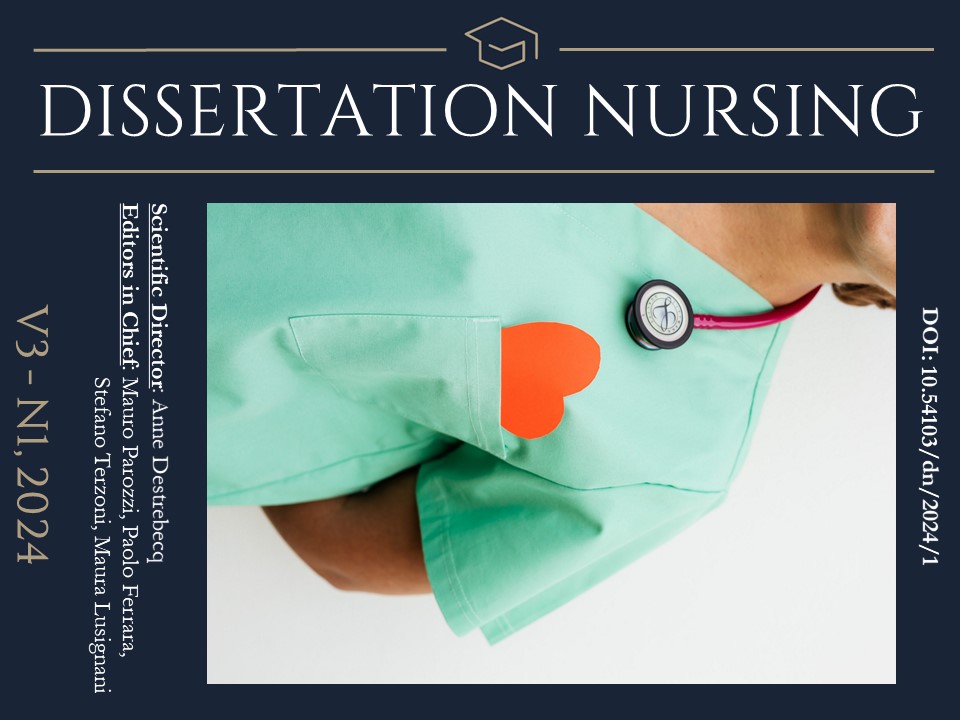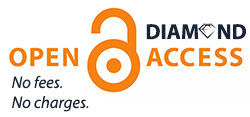Il livello di Health Literacy negli studenti Bergamaschi: uno studio osservazionale
DOI:
https://doi.org/10.54103/dn/20570Parole chiave:
Alfabetizzazione Sanitaria, Studenti, Assistenza Infermieristica, Indagine, InfermieriAbstract
INTRODUZIONE:
Recenti studi hanno evidenziato come l’Health Literacy (HL) rappresenti uno dei determinanti della salute fondamentali per il benessere delle persone. Nonostante questo concetto sia ampiamente approvato dalla comunità scientifica, il trend di ricerca verte su outcomes quali disinformazione e carenza di HL nel soggetto con problematiche legate alla dimensione della salute mentale, delle malattie croniche, utilizzo e abuso di droghe, piuttosto che valutarne l’effettivo livello nella popolazione. È quindi necessaria un’analisi più ampia e generalizzata, che appoggi la comunità Europea nella valutazione dei livelli di HL nella popolazione, così da dimostrare quanto un suo incremento, permetta un miglioramento sia della salute degli individui, che del Sistema Sanitario.
OBIETTIVO:
Misurare le competenze di HL in un campione di studenti delle classi quinte frequentanti istituti superiori, con un’età compresa tra i 17 ed i 19 anni.
MATERIALI E METODI:
Questo studio monocentrico, descrittivo, si è svolto nel periodo tra il 15 ed il 30 settembre 2021, ed ha utilizzato il questionario HLS Q-16 (European Health Literacy Survey Questionnaire) validato da Lorini et al. (2019), per valutare il livello di HL.
RISULTATI: i risultati sono in accordo con quanto ottenuto da Lorini et al. (2019) e consentono di affermare che più della metà del campione, risulta avere un livello di HL problematico o inadeguato.
CONCLUSIONI: risulta fondamentale continuare la ricerca in questo ambito fortemente inesplorato sul territorio italiano ed analizzare in modo oggettivo e dimostrabile, dei potenziali correttivi che possano rimediare alla carenza di HL nel cittadino.
Downloads
Riferimenti bibliografici
Sørensen et al., HLS-EU Consortium: comparative report of Health Literacy in eight EU member states. The European Health Literacy Survey HLS-EU. 2012
De Caro W., Caranzetti M., Capriati I., Alicastro M., Angelini S., Dionisi S., Lancia L. and Sansoni J. Il concetto di Health Literacy e la sua importanza per la professione infermieristica. Professioni Infermieristiche - Vol. 68 n.3, pp.133-142; 2015
Nutbeam D. Health literacy as a public health goal: a challenge for contemporary health education and communication strategies into the 21st century. Health Promotion International, 15(3), pp.259-267. 2000.
Lorini C., Lastrucci V., Mantwill S., Vettori V. and Bonaccorsi G. Measuring health literacy in Italy: a validation study of the HLS-EU-Q16 and of the HLS-EU-Q6 in Italian language, conducted in Florence and its surroundings. Ann Ist Superiore della Sanità, Vol. 55 - No. 1, pp.10 - 18. 2019.
Pelikan JM, Röthlin F, Ganahl K, 2014. Measuring comprehensive health literacy in general populations: validation of instrument, indices and scales of the HLS-EU study. 6th Annual Health Literacy Research Conference. Bethesda, Maryland: Hyatt Regency.
HLS-EU Consortium: comparative report of Health Literacy in eight EU member states. The European Health Literacy Survey HLS-EU. 2012
Kickbusch I., Pelikan J., Apfel F. and Tsouros A. Health Literacy: the solid facts. World Health Organization. 2017
Gele AA. Pettersen KS. Torheim LE. Kumar B. Health literacy: the missing link in improving the health of Somali immigrant women in Oslo. BMC Public Health, 2016.
Klinker C., Aaby A., Ringgaard L., Hjort A., Hawkins M. and Maindal H. Health Literacy is Associated with Health Behaviors in Students from Vocational Education and Training Schools: A Danish Population-Based Survey. International Journal of Environmental Research and Public Health, 17(2), p.671. 2020.
Wang W., Hou Y., Hu N., Zhang D., Tao J., Man Y., Wang A., Li L. and Bi Y. A cross-sectional study on health-related knowledge and its predictors among Chinese vocational college students. BMJ Open, 4(10), p.e005182. 2014.
Rababah J., Al-Hammouri M., Drew B. and Aldalaykeh M. Health literacy: exploring disparities among college students. BMC Public Health, 19(1). 2019.
Harper R. Development of a Health Literacy Assessment for Young Adult College Students: A Pilot Study. Journal of American College Health, 62(2), pp.125-134. 2014.
Gazibara T., Cakic J., Cakic M., Pekmezovic T. and Grgurevic A. eHealth and adolescents in Serbia: psychometric properties of eHeals questionnaire and contributing factors to better online health literacy. Health Promotion International, 34(4), pp.770-778. 2018.
Elsborg L., Krossdal F. and Kayser L. Health literacy among Danish university students enrolled in health-related study programmes. Scandinavian Journal of Public Health, 45(8), pp.831-838. 2017.
Baker D. Health Literacy and Mortality Among Elderly Persons. Archives of Internal Medicine, 167(14), p.1503. 2007.
Okan O., Paakkari L. and Dadaczynski K. Health Literacy nelle scuole: lo stato dell'arte. School for Health in Europe factsheet no. 6. 2020.
Finnish National Board of Education. National core curriculum for basic education 2014. National core curriculum for basic education intended for pupils subject to compulsory education. Helsinki: Next Print Oy, 2016.
Joint Committee on National Health Education Standards. National Health Education Standards: Achieving Health Literacy, 1995.
Joint Committee on National Health Education Standards. National Health Education Standards. Achieving Excellence. Chicago: American Cancer Society, 2007.
Australian Curriculum, Assessment and Reporting Authority. Shape of the Australian Curriculum: Health and Physical Education. Sydney: ACARA, 2012.
McDaid D. Investing in health literacy. What do we know about the co-benefits to the education sector of actions targeted at children and young people? Policy Brief 19. World Health Organization Regional Office for Europe, European Observatory on Health Systems and Policies: Copenhagen, 2016.
Sukys S., Cesnaitiene V. and Ossowsky Z. Is Health Education at University Associated with Students’ Health Literacy? Evidence from Cross-Sectional Study Applying HLS-EU-Q. BioMed Research International, 2017, pp.1-9. 2017
Macabasco-O’Connell A., & Fry-Bowers E.K., Knowledge and perceptions of Health Literacy among nursing professionals. Journal of Health Communication, 16(3), 295-307. 2011.
McCleary-Jones, Voncella PhD, RN, BC, CNE. Una revisione sistematica della letteratura sull'alfabetizzazione sanitaria nell'educazione infermieristica. Nurse Educator 41(2): p 93-97, 2016.
Dowloads
Pubblicato
Versioni
- 2024-02-01 (3)
- 2024-01-31 (2)
- 2024-01-31 (1)
Come citare
Fascicolo
Sezione
Licenza
Copyright (c) 2024 Luca Ongis, Giulia Barcella

Questo lavoro è fornito con la licenza Creative Commons Attribuzione - Non commerciale - Non opere derivate 4.0 Internazionale.
Accettato 2023-10-04
Pubblicato 2024-02-01

















